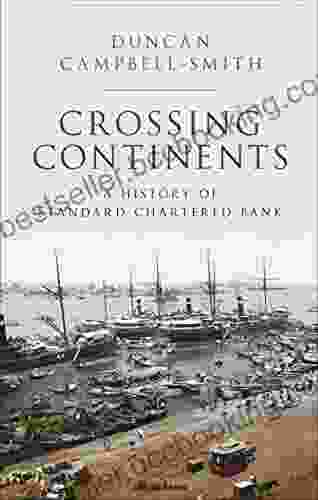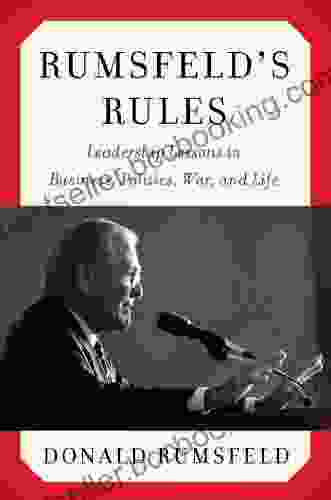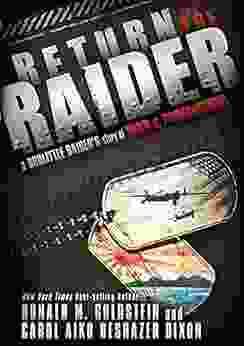Leadership Lessons In Business Politics War And Life: A Comprehensive Guide To Becoming A Great Leader

Leadership is a complex and challenging endeavor, but it is also one of the most rewarding. Great leaders have the ability to inspire others to achieve great things. They can motivate their teams to work together towards a common goal, and they can build strong relationships that last a lifetime.
If you want to become a great leader, there are certain skills and qualities that you need to develop. These include:
- Communication skills: Great leaders are able to communicate effectively with their team members. They can clearly articulate their vision and goals, and they can motivate and inspire others to follow them.
- Interpersonal skills: Great leaders have strong interpersonal skills. They are able to build strong relationships with their team members, and they can create a positive and supportive work environment.
- Decision-making skills: Great leaders are able to make sound decisions under pressure. They can weigh the pros and cons of different options, and they can make decisions that are in the best interests of their team.
- Strategic thinking skills: Great leaders are able to think strategically. They can develop long-term plans, and they can anticipate and prepare for future challenges.
- Emotional intelligence: Great leaders have high emotional intelligence. They are able to understand their own emotions and the emotions of others. They can also manage their emotions effectively, and they can use their emotional intelligence to build strong relationships and create a positive work environment.
In addition to these skills and qualities, great leaders also need to have a strong sense of purpose. They need to know what they want to achieve, and they need to be passionate about their work. When leaders have a strong sense of purpose, they are able to inspire others to follow them and achieve great things.
4.6 out of 5
| Language | : | English |
| File size | : | 2009 KB |
| Text-to-Speech | : | Enabled |
| Screen Reader | : | Supported |
| Enhanced typesetting | : | Enabled |
| X-Ray | : | Enabled |
| Word Wise | : | Enabled |
| Print length | : | 337 pages |
In business, leaders play a vital role in the success of their organizations. They set the vision and goals for the company, and they create the culture and environment that employees work in. Great leaders are able to motivate and inspire their employees to achieve great things. They can also build strong relationships with customers and partners, and they can create a positive and productive work environment.
There are many different leadership styles that can be effective in business. Some leaders are more autocratic, while others are more democratic. Some leaders are more focused on task, while others are more focused on people. The best leadership style for a particular organization will depend on the size of the organization, the industry it operates in, and the culture of the organization.
Regardless of the leadership style they adopt, great leaders in business share a number of common traits. They are:
- Visionary: Great leaders have a clear vision for the future of their organization. They can articulate their vision in a way that inspires others to follow them.
- Strategic: Great leaders are able to think strategically. They can develop long-term plans, and they can anticipate and prepare for future challenges.
- Motivating: Great leaders are able to motivate and inspire their employees to achieve great things. They can create a positive and productive work environment, and they can build strong relationships with their employees.
- Decisive: Great leaders are able to make sound decisions under pressure. They can weigh the pros and cons of different options, and they can make decisions that are in the best interests of their organization.
- Communicative: Great leaders are able to communicate effectively with their employees. They can clearly articulate their vision and goals, and they can motivate and inspire others to follow them.
In politics, leaders play a vital role in the governance of their country. They make decisions that affect the lives of everyone in the country, and they set the tone for the political discourse. Great leaders in politics are able to inspire and motivate others to work together for the common good. They can also build strong relationships with other leaders, and they can create a positive and productive political environment.
There are many different leadership styles that can be effective in politics. Some leaders are more charismatic, while others are more pragmatic. Some leaders are more focused on ideology, while others are more focused on results. The best leadership style for a particular politician will depend on the political system they operate in, the culture of their country, and the issues that are facing the country.
Regardless of the leadership style they adopt, great leaders in politics share a number of common traits. They are:
- Visionary: Great leaders in politics have a clear vision for the future of their country. They can articulate their vision in a way that inspires others to follow them.
- Strategic: Great leaders in politics are able to think strategically. They can develop long-term plans, and they can anticipate and prepare for future challenges.
- Motivating: Great leaders in politics are able to motivate and inspire others to work together for the common good. They can create a positive and productive political environment, and they can build strong relationships with their constituents.
- Decisive: Great leaders in politics are able to make sound decisions under pressure. They can weigh the pros and cons of different options, and they can make decisions that are in the best interests of their country.
- Communicative: Great leaders in politics are able to communicate effectively with their constituents. They can clearly articulate their vision and goals, and they can motivate and inspire others to follow them.
In war, leaders play a vital role in the success of their military forces. They make decisions that affect the lives of their soldiers, and they set the tone for the military campaign. Great leaders in war are able to inspire and motivate their soldiers to fight for their country. They can also build strong relationships with their allies, and they can create a positive and productive military environment.
There are many different leadership styles that can be effective in war. Some leaders are more charismatic, while others are more pragmatic. Some leaders are more focused on tactics, while others are more focused on strategy. The best leadership style for a particular military leader will depend on the type of war they are fighting, the terrain they are fighting in, and the enemy they are facing.
Regardless of the leadership style they adopt, great leaders in war share a number of common traits. They are:
- Visionary: Great leaders in war have a clear vision for the future of their military campaign. They can articulate their vision in a way that inspires their soldiers to follow them.
- Strategic: Great leaders in war are able to think strategically. They can develop long-term plans, and they can anticipate and prepare for future challenges.
- Motivating: Great leaders in war are able to motivate and inspire their soldiers to fight for their country. They can create a positive and productive military environment, and they can build strong relationships with their soldiers.
- Decisive: Great leaders in war are able to make sound decisions under pressure. They can weigh the pros and cons of different options, and they can make decisions that are in the best interests of their military forces.
- Communicative: Great leaders in war are able to communicate effectively with their soldiers. They can clearly articulate their vision and goals, and they can motivate and inspire their soldiers to follow them.
Leadership is not just about being in a position of authority. It is about taking responsibility for your own life and for the lives of others. Great leaders in life are able to inspire and motivate others to achieve their goals. They can also build strong relationships, and they can create a positive and productive environment.
There are many different leadership styles that can be effective in life. Some leaders are more charismatic, while others are more pragmatic. Some leaders are more focused on task, while others are more focused on people. The best leadership style for a particular person will depend on their personality, their life circumstances, and their goals.
Regardless of the leadership style they adopt, great leaders in life share a number of common traits. They are:
- Visionary: Great leaders in life have a clear vision for their own future and for the future of others. They can articulate their vision in a way that inspires others to follow them.
- Strategic: Great leaders in life are able to think strategically. They can develop long-term plans, and they can anticipate and prepare for future challenges.
- Motivating: Great leaders in life are able to motivate and inspire others to achieve their goals. They can create a positive and productive environment, and they can build strong relationships with others.
- Decisive: Great leaders in life are able to make sound decisions under pressure. They can weigh the pros and cons of different options, and they can make decisions that are in the best interests of themselves and others.
- Communicative: Great leaders in life are able to communicate effectively with others. They can clearly articulate their vision and goals, and they can motivate and inspire others to follow them.
Leadership is a complex and challenging endeavor, but it is also one of
4.6 out of 5
| Language | : | English |
| File size | : | 2009 KB |
| Text-to-Speech | : | Enabled |
| Screen Reader | : | Supported |
| Enhanced typesetting | : | Enabled |
| X-Ray | : | Enabled |
| Word Wise | : | Enabled |
| Print length | : | 337 pages |
Do you want to contribute by writing guest posts on this blog?
Please contact us and send us a resume of previous articles that you have written.
 Book
Book Novel
Novel Page
Page Chapter
Chapter Text
Text Story
Story Genre
Genre Reader
Reader Library
Library Paperback
Paperback E-book
E-book Magazine
Magazine Newspaper
Newspaper Paragraph
Paragraph Sentence
Sentence Bookmark
Bookmark Shelf
Shelf Glossary
Glossary Bibliography
Bibliography Foreword
Foreword Preface
Preface Synopsis
Synopsis Annotation
Annotation Footnote
Footnote Manuscript
Manuscript Scroll
Scroll Codex
Codex Tome
Tome Bestseller
Bestseller Classics
Classics Library card
Library card Narrative
Narrative Biography
Biography Autobiography
Autobiography Memoir
Memoir Reference
Reference Encyclopedia
Encyclopedia Denny O Neil
Denny O Neil Don N Hagist
Don N Hagist Dr Andrew Coe
Dr Andrew Coe Douglas Max
Douglas Max Doug Tatum
Doug Tatum Dora Charles
Dora Charles Dominique Mondesir
Dominique Mondesir Dominique Conil
Dominique Conil Dimitri Loose
Dimitri Loose Devereaux Divens
Devereaux Divens Dion Leonard
Dion Leonard Debra Condren
Debra Condren Dr Lena Edwards
Dr Lena Edwards Dennis L Thombs
Dennis L Thombs Donna Weber
Donna Weber Don Flowers
Don Flowers Douelfiqar Elmostafa
Douelfiqar Elmostafa Diana Korte
Diana Korte Deborah T Goldberg
Deborah T Goldberg Denali Schmidt
Denali Schmidt
Light bulbAdvertise smarter! Our strategic ad space ensures maximum exposure. Reserve your spot today!

 Griffin MitchellDiscover the Enchanting Wilderness of Glacier Bay National Park in "Glacier...
Griffin MitchellDiscover the Enchanting Wilderness of Glacier Bay National Park in "Glacier... Herman MelvilleFollow ·5k
Herman MelvilleFollow ·5k Corey GreenFollow ·5.8k
Corey GreenFollow ·5.8k Aron CoxFollow ·19.3k
Aron CoxFollow ·19.3k Frank ButlerFollow ·11.3k
Frank ButlerFollow ·11.3k Vincent MitchellFollow ·7.7k
Vincent MitchellFollow ·7.7k Corbin PowellFollow ·14.8k
Corbin PowellFollow ·14.8k Alec HayesFollow ·5.8k
Alec HayesFollow ·5.8k Cortez ReedFollow ·15.1k
Cortez ReedFollow ·15.1k

 J.D. Salinger
J.D. SalingerThe Quintessential American Cook: A Culinary Journey with...
Prologue: The Man...

 Franklin Bell
Franklin BellIntroducing Romanticism: A Literary Guide to the Romantic...
Romanticism was a...

 Denzel Hayes
Denzel HayesThe Untold And Inspiring Story Of Eric Liddell Hero Of...
The Olympian Who Defied...

 Oscar Wilde
Oscar WildeDiscover the Enchanting Adventure of Arthur Woody and the...
Immerse Yourself in a World of Mystery,...

 Fernando Bell
Fernando BellAlibaba: The House That Jack Ma Built
The Rise of the Chinese E-Commerce Giant ...

 Leo Tolstoy
Leo TolstoyCrossing Continents: A History of Standard Chartered Bank
By John M. Smith Crossing...
4.6 out of 5
| Language | : | English |
| File size | : | 2009 KB |
| Text-to-Speech | : | Enabled |
| Screen Reader | : | Supported |
| Enhanced typesetting | : | Enabled |
| X-Ray | : | Enabled |
| Word Wise | : | Enabled |
| Print length | : | 337 pages |










